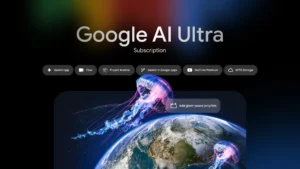OpenAI is shaking up the world of software development with the launch of Codex, a next-generation AI coding agent powered by its Codex-1 model—an optimized version of its advanced o3 reasoning model. Codex goes far beyond autocomplete or co-pilot tools—it can independently write code, fix bugs, run tests, and even conduct code reviews. Available now for ChatGPT Pro, Team, and Enterprise users, Codex isn’t just a tool—it’s a teammate. As AI competition heats up from Anthropic, Google, and Microsoft, OpenAI’s new move signals a serious intent to dominate the red-hot AI coding space.
What Is Codex?

OpenAI’s Codex is an autonomous, cloud-based AI agent built specifically for software engineering tasks. Unlike real-time coding assistants like GitHub Copilot or Cursor, Codex works independently, often taking 1 to 30 minutes to complete a job and returning a complete, reviewed solution.
Key Capabilities:
- Write full codebases or individual modules
- Identify and fix bugs
- Run unit and integration tests
- Perform intelligent code reviews
- Answer detailed technical questions about existing code
Built on Codex-1: AI Optimized for Engineers
At the heart of Codex is Codex-1, a specialized version of OpenAI’s o3 model tailored for reasoning-heavy tasks in software development. This optimization allows Codex to understand and adapt to an organization’s coding conventions, a major leap from typical code autocompletion models.
“It’s a fundamentally new way of working,”
— Srinivas Narayanan, VP of Engineering at OpenAI
Codex Availability & Plans
Codex is now rolling out as a research preview for:
- ChatGPT Pro
- ChatGPT Team
- ChatGPT Enterprise
OpenAI says feedback from this early phase will help refine its capabilities while addressing risks and scaling challenges.
The Bigger Picture: AI Arms Race in Coding
Codex is OpenAI’s big push to compete in a field where rivals like Anthropic’s Sonnet models and startups like Cursor (by Anysphere) have already gained strong traction among developers.
OpenAI is also in talks to acquire Windsurf, an AI coding startup, for $3 billion, according to Bloomberg. While no official comment has been made, the move suggests OpenAI is doubling down on AI-powered software engineering tools.
Codex vs Competitors
| Feature | OpenAI Codex | Anthropic Sonnet | GitHub Copilot |
|---|---|---|---|
| Autonomous execution | ✅ Yes | ❌ No | ❌ No |
| Cloud-based agent | ✅ Yes | ❌ No | ❌ No |
| Understand org coding style | ✅ Advanced | ⚠️ Partial | ❌ No |
| Output time | 1–30 minutes | Real-time | Real-time |
| Integrated testing & reviews | ✅ Yes | ⚠️ Limited | ⚠️ Limited |
What the Experts Are Saying
“There are lots of good AI systems out there. Competition is clearly there.”
— Srinivas Narayanan, OpenAI
“Sonnet models currently lead in developer preference, but it’s all changing fast.”
— Wayne Chi & Valerie Chen, CMU Researchers
Final Thoughts
OpenAI’s Codex isn’t just a chatbot feature—it’s a sign of where the future of development is headed. As AI evolves from assistant to autonomous collaborator, Codex may well become the standard coding partner for organizations worldwide.
If successful, Codex could reduce engineering overhead, shorten dev cycles, and enable faster innovation.



